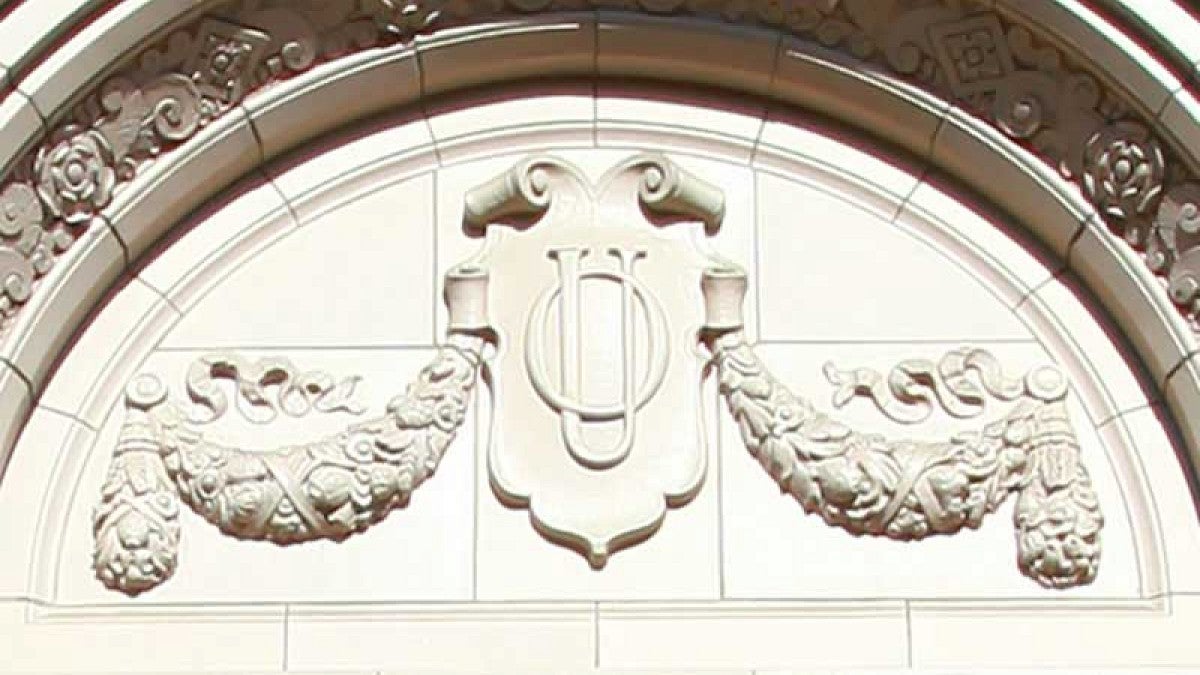The University of Oregon Board of Trustees received updates on COVID-19’s impact on university finances, the mental well-being and financial security of UO students, and student success initiatives at its Sept. 10 meeting.
At a time of national debate about the role of policing, the board also discussed the UO Police Department with Chief Matt Carmichael, who provided an overview of the UOPD’s work, community policing philosophy and efforts to improve diversity, equity and inclusion at the department.
The board meeting took place against the backdrop of an unprecedented week of wildfires in Oregon, including the 150,000-acre Holiday Farm Fire burning east of Eugene.
President Michael Schill opened the meeting by announcing the university will offer shelter in its residence halls and access to showers and the UO Student Recreation Center to displaced members of the university community. The UO will coordinate with local governments on further support to the Lane County community, he added.
“These are trying times for all of us. Indeed, now with the smoke and fire it can feel a bit biblical,” Schill said. “Nevertheless, I remain grateful and impressed at the ways in which our community members are coming together to support one another, again and again.”
UO Chief Financial Officer Jamie Moffitt provided an update on the university’s financial position, both for its education and general fund and its key auxiliary budgets, like University Housing and athletics.
Moffitt said the UO’s education and general fund has so far benefited from stable tuition revenue, no immediate cut to its state funding, and reduced supplies and services expenses, allowing the university to end the FY 20 fiscal year with a smaller-than-anticipated $7.6 million deficit. Auxiliary budgets, however, suffered combined losses of almost $17 million during spring term, she said.
Moffitt presented the board with a range of potential scenarios for the current fiscal year, depending on student enrollment among other factors. Moffitt and Vice President for Student Services and Enrollment Management Roger Thompson said their early projections are for an incoming first-year class of between 3,800 and 4,100 students, which would represent a decrease from recent years. That could potentially leave the general fund with a budget gap of up to $14 million, Moffitt said.
“These are disappointing numbers, but it’s not catastrophic,” trustee Ross Kari said. “Hopefully we’ll be able to achieve (anticipated) cost savings and keep the budget gap” in that range.
The UO’s auxiliary budgets will likely face multimillion-dollar shortfalls, due primarily to declines in the number of students in residence halls and athletics event cancellations.
Thompson said that before COVID-19, the UO had been on track for a potentially record-breaking first-year class of more than 4,800 students.
“What’s frustrating is that it could have been a very good enrollment year,” he said. “It’s difficult to see these numbers when we had a record number of applications and admits.”
In other business, Andre LeDuc, the UO’s chief resilience officer, briefed the board on the latest COVID-19 operational plans, including the hopes that the university may be approved by the U.S. Food and Drug Administration to provide saliva-based testing to students by mid-October.
Trustees also heard several updates related to UO students, including the distribution of Student Crisis Fund and federal CARES Act dollars and the demographics of students who needed and received financial aid.
University Health Services Director Deb Beck and University Counseling Center Director Shelley Kerr discussed recent trends in student mental health and their early experiences with offering telecounseling to students.
And Doneka Scott, vice provost for undergraduate education and student success; Sung-Woo Cho, a research professor in the College of Education; and Yvette Alex-Assensoh, vice president for equity and inclusion, provided a semiannual report on student success initiatives.
Carmichael highlighted some of the key services the department provides to campus, which include responding to police calls on campus, crime prevention and investigations, as well as coordinating with local mental health service CAHOOTS to provide care to individuals in crisis.
Carmichael also pointed to initiatives he’s launched to improve officer training on implicit bias, to create more diversity within the department, and to boost transparency and accountability about what UOPD does.
“We listen” to the community, Carmichael said. “We have room to improve. As your police chief, I acknowledge that historic and systemic issues of racism in policing exist.”
“It’s what we do moving forward that matters,” he later added.
Trustee Ginevra Ralph said the review of UOPD was timely given some of the “disturbing” incidents of police violence across the country.
“We’ve got to do better,” she said.
Schill said that he expects an “active period” related to UOPD with some potential policy changes to be proposed in the coming months
“We are very fortunate to have Matt as our chief,” Schill said. “He is incredibly open to ideas and change …. We know we need to adapt.”
Trustees are planning office hours and listening sessions during fall term to provide an opportunity for direct engagement with the campus community. More information will be announced as details are set.
—By Saul Hubbard, University Communications


